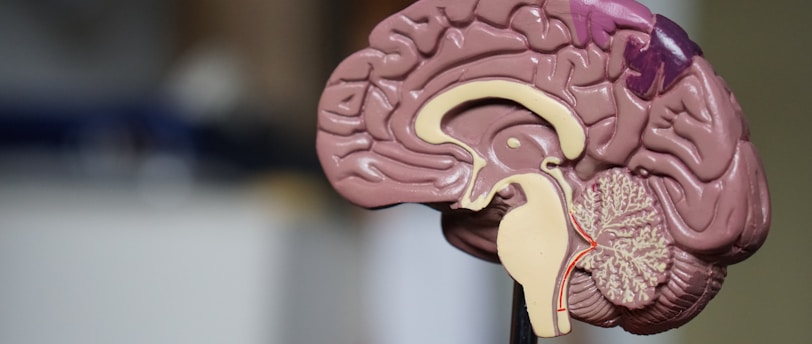Lessons from Russell Barkley: How to Refuel the Brain Tank When You Have ADHD and Feel Unmotivated
9/21/20233 min read


Introduction
Living with Attention Deficit Hyperactivity Disorder (ADHD) can often make it challenging to stay motivated and focused. However, renowned psychologist Russell Barkley has provided valuable insights into how individuals with ADHD can refuel their brain tank and regain motivation. In this article, we will explore some of Barkley's key recommendations, including physical exercise, glucose ingestion, visualizing and talking about future rewards, statements of self-efficacy, and using greater rewards.
1. Physical Exercise
One of the most effective ways to refuel the brain tank when you have ADHD is through physical exercise. Engaging in regular physical activity has been shown to enhance cognitive function, improve mood, and increase motivation. Exercise stimulates the release of endorphins, which are natural mood boosters, and increases blood flow to the brain, promoting optimal brain function.
Whether it's going for a run, practicing yoga, or participating in team sports, finding a form of exercise that you enjoy can have a significant impact on your motivation levels. Aim for at least 30 minutes of moderate-intensity exercise most days of the week to experience the benefits.
2. Glucose Ingestion
Another way to refuel the brain tank is by ingesting glucose. Glucose is the primary source of energy for the brain, and maintaining stable blood sugar levels can help improve focus and motivation. When glucose levels drop, it can lead to feelings of fatigue and decreased cognitive function.
Consuming foods that are high in complex carbohydrates, such as whole grains, fruits, and vegetables, can provide a steady supply of glucose to the brain. Avoiding sugary snacks and opting for healthier alternatives can help prevent energy crashes and maintain motivation throughout the day.
3. Visualizing and Talking About Future Rewards
Visualizing and talking about future rewards can be a powerful tool for refueling the brain tank and increasing motivation. When individuals with ADHD can envision the positive outcomes and rewards that await them, it can provide a sense of purpose and drive.
Take some time each day to visualize your goals and the rewards that come with achieving them. Create a vision board or write down your aspirations to make them more tangible. Additionally, discussing your future rewards with a supportive friend or family member can help reinforce your motivation and keep you focused on your goals.
4. Statements of Self-Efficacy
Self-efficacy refers to an individual's belief in their ability to succeed in specific situations or accomplish tasks. Building self-efficacy can significantly impact motivation levels, especially for individuals with ADHD who may face additional challenges.
Practice positive self-talk and affirmations to boost your self-efficacy. Remind yourself of past successes and the skills you possess that can help you overcome obstacles. By reinforcing your belief in your abilities, you can refuel your brain tank and approach tasks with renewed motivation.
5. Using Greater Rewards
ADHD often requires individuals to navigate a world that may not be designed to accommodate their unique needs. As a result, traditional rewards may not always be sufficient to maintain motivation. In these cases, using greater rewards can provide the necessary incentive.
Identify what truly motivates you and consider using it as a reward for completing challenging tasks or achieving goals. Whether it's treating yourself to a favorite activity, buying something you've been wanting, or planning a special outing, the promise of a significant reward can refuel your brain tank and help you stay motivated.
Conclusion
Living with ADHD can present unique challenges when it comes to maintaining motivation. However, by implementing some of the lessons from Russell Barkley, individuals with ADHD can refuel their brain tank and regain their motivation. Incorporate physical exercise, glucose ingestion, visualizing and talking about future rewards, statements of self-efficacy, and using greater rewards into your daily routine to enhance motivation and achieve your goals.
Address
10200 Hwy 290 Austin, Tx 78736
Contacts
Bill Deggs, MA, LPC, RPT +5129237716 billdeggs@fytclinic.com
Cost
United Health Care, Oscar and Aetna Insurance Accepted; Private Pay $175 Per Session
